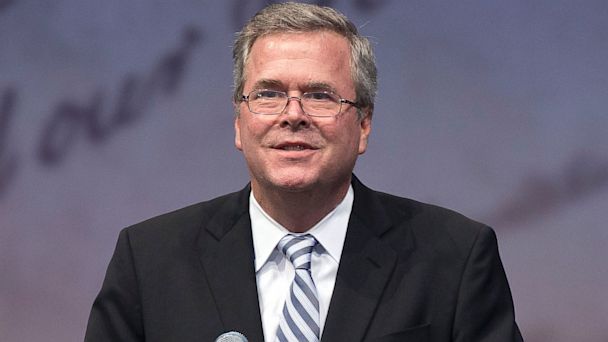[This piece has been adapted and updated by Nomi Prins from her book All the Presidents’ Bankers: The Hidden Alliances That Drive American Power, recently out in paperback (Nation Books).]
It’s happening. As expected, dynastic politics is prevailing in campaign 2016. After a tease about as long as Hillary’s, Jeb Bush (aka Jeb!) officially announced his presidential bid last week. Ultimately, the two of them will fight it out for the White House, while the nation’s wealthiest influencers will back their ludicrously expensive gambit.
And here’s a hint: don’t bet on Jeb not to make it through the Republican gauntlet of 12 candidates (so far). After all, the really big money’s behind him. Last December, even though out of public office since 2007, he had captured the support of 73% of the Wall Street Journal’s “richest CEOs.” Though some have as yet sidestepped declarations of fealty, count on one thing: the big guns will fall into line. They know that, given his family connections, Jeb is their best path to the White House and they’re not going to blow that by propping up some Republican lightweight whose father and brother weren’t president, not when Hillary, with all her connections and dynastic power, will be the opponent. That said, in the Bush-Clinton battle to come, no matter who wins, the bankers and billionaires will emerge victorious.
The issue of political blood and family lines in Washington is not new. There have been three instances in our history in which presidents have been bonded by blood. Our second president John Adams and eighth president John Quincy Adams were father and son. Theodore and Franklin Delano Roosevelt were cousins. And then, of course, there were our 41st and 43rd presidents, George H.W. and George W.
If Jeb becomes the 45th president, it will be the first time that three administrations share the same blood and “dynastic” will have a new meaning in America.
The Bush Legacy
The Bush political-financial legacy began when President Ronald Reagan chose Jeb’s father, George H.W., as his vice president. Reagan was also the first president to choose a Wall Street CEO, Donald Regan, as Treasury secretary. Then-CEO of Merrill Lynch, he happened to be a Bush family friend. And talk about family tradition: once upon a time (in 1900, to be exact), Jeb’s great-grandfather, George Herbert Walker, founded G.W. Walker & Company. It was eventually acquired by — you guessed it! — Merrill Lynch, which was consumed by Bank of America at the height of the 2008 financial crisis.
That merger was pressed by, among others, George W. Bush’s Treasury Secretary (and former Goldman Sachs chairman and CEO), Hank Paulson. It helped John Thain, Paulson’s former number two at Goldman Sachs, who was by then Merrill Lynch’s CEO, out of a tight spot. Now chairman and CEO of CIT Group, Thain is also a prominent member of the Republican Party who sponsored high-ticket fundraisers for John McCain during his 2008 campaign. Expect him to be there for Jeb. Paulson endorsed Jeb for president on April 15th. That’s how these loops go.

